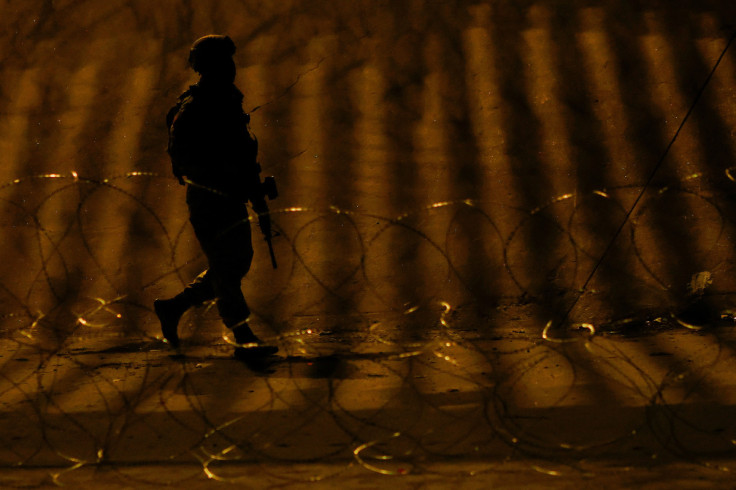
Texas authorities were dealt a legal setback on Wednesday after an appeals court extended the blocking of SB4, its law allowing state law enforcement to arrest and deport migrants, while the litigation with the Justice Department continues.
However, the Greg Abbott administration is seeking to prevent migrants from entering its territory on different fronts, and a new report by the LA Times describes how it has turned a port of entry into a "militarized zone, fortified by rifle-toting soldiers, a fleet of Humvees and a forest of razor wire glistening in the desert sun."
The report adds that the goal is preventing migrants from reaching the gate altogether, thus making it impossible for them to apply for political asylum or other forms of relief that could allow them to stay in the U.S.
The report witnessed hundreds of people stuck in the area, with one of them saying they wanted to turn themselves in but the army won't let them. Last week migrants managed to break through the gate and surrender to Border Patrol, leading Abbott to beef up forces there.
The tactics are not new -he sent the National Guard in late 2022- but are taking centerstage as Texas and the federal government continue to clash over immigration enforcement at the southern border.

The Abbott administration has erected razor wire as a barrier between the Rio Grande River and Shelby Park, a 47-acre area in Eagle Pass, even after the federal government said the wire impedes federal border agents from apprehending people who cross the river. It has continued to do so despite the government getting a ruling ordering Texas to stop.
But the main clash taking place at the moment concerns SB4, the aforementioned law allowing state authorities to arrest and deport migrants who enter the state unlawfully.
The three-judge panel who comprise the 5th U.S. Circuit Court of Appeals issued a divided 2-1 ruling on Wednesday, blocking it from going into effect while the litigation continues. Writing for the majority, Judge Priscilla Richman said that "for nearly 150 years, the Supreme Court has held that the power to control immigration — the entry, admission, and removal of noncitizens—is exclusively a federal power."
SB4 was briefly in effect last Tuesday after the Supreme Court lifted a stay allowing it to go ahead while the broader legal battle continued. Liberal justices Ketanji Brown Jackson, Elena Kagan and Sonia Sotomayor had disagreed about letting the law go into effect. However, the appeals court blocked it shortly after and began with the hearings. According to NBC News, Texas could potentially ask now the Supreme Court to allow the law to go into effect.
SB4 allows state authorities to arrest and potentially deport migrants who cross the border unlawfully. Concretely, they can identify, apprehend, and prosecute people under suspicion of having entered the country without authorization.
In addition, it classifies these illegal crossings as a Class B misdemeanor that carries a penalty of up to six months in jail. Migrants who don't leave and are arrested again could face more serious charges.
© 2025 Latin Times. All rights reserved. Do not reproduce without permission.




